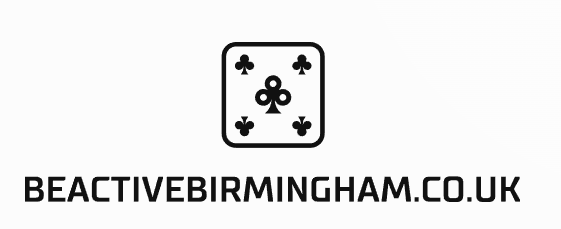As industry professionals navigating the ever-evolving landscape of financial regulations, we find ourselves at a pivotal moment where changes in bonus regulations demand our close attention. These modifications are designed to align compensation with long-term performance and ethical standards, presenting both challenges and opportunities for our organizations.
Our aim is to unravel the complexities and implications of these regulatory shifts on our practices and strategies. By understanding the rationale behind these changes, we can adapt proactively, ensuring compliance while maintaining a competitive advantage.
We will explore diverse perspectives from leading experts to shed light on how these regulations impact our decision-making processes and the broader financial ecosystem. By examining these insights, we are equipped to make informed decisions that resonate with our commitment to responsible and sustainable growth.
Together, let us journey through these expert analyses to navigate the path forward with confidence and clarity.
Regulatory Shifts in Bonus Structures
Over recent years, we’ve seen significant changes in how bonuses are regulated across various industries.
This evolution in bonus regulations has been driven by the need for transparency and fairness, ensuring everyone feels like a valued member of the team. We’ve noticed that performance metrics are now more integral than ever, aligning bonuses with clear and measurable outcomes.
This not only motivates us to excel in our roles but also strengthens our sense of belonging within the organization.
As we navigate these regulatory shifts, compliance strategies have become paramount. Companies are adopting robust frameworks to ensure that their bonus structures meet legal standards while still rewarding us effectively. These strategies help create a cohesive environment where we all understand the criteria for earning bonuses, fostering trust and unity.
By embracing these changes, we are not only compliant but also cultivating a culture of accountability and shared success. Together, we can thrive in this new regulatory landscape, feeling supported and recognized for our contributions.
Impact on Compensation Practices
Our compensation practices are evolving as we adapt to the new bonus regulations, directly influencing how we structure salaries and incentives. We’re all in this together, navigating changes that require us to rethink our strategies.
By integrating compliance strategies, we ensure our compensation packages:
- Align with regulatory standards
- Maintain fairness and transparency
This approach strengthens our community, fostering a sense of trust and shared purpose.
Embracing performance metrics is crucial in this transition. As we align bonuses with measurable achievements, we create a more motivating environment for everyone. Our collective success depends on setting clear, attainable goals that:
- Reflect our values
- Drive us forward
These adjustments not only help us comply with the new regulations but also enhance motivation and engagement across the board.
By proactively adapting our compensation practices, we’re setting the stage for a culture that:
- Rewards excellence
- Adheres to the necessary compliance frameworks
This ensures everyone feels valued and part of a thriving team.
Aligning Bonuses with Performance Metrics
Aligning Bonuses with Performance Metrics
To ensure our bonuses truly reflect individual and team contributions, we’re focusing on aligning them with specific performance metrics. By doing so, we not only enhance motivation and fairness but also reinforce our commitment to transparency in our bonus regulations. This approach helps us foster a sense of belonging, where everyone understands how their efforts translate into tangible rewards.
Compliance Strategies
Our compliance strategies play a crucial role in this alignment. We’re implementing performance metrics that are:
- Clear
- Measurable
- Aligned with organizational goals
This ensures that our bonus system remains both equitable and motivational. Regular reviews of these metrics allow us to adapt and refine our strategies, ensuring they remain relevant and effective.
Engagement and Collaboration
By engaging with our teams, we encourage:
- Feedback
- Collaboration
This ensures that these performance metrics resonate with everyone. This collaborative approach strengthens our community as we work together towards common goals.
With these changes, we’re confident that our bonus system will drive performance and foster an inclusive workplace.
Ethical Considerations in Bonus Allocation
When allocating bonuses, we must carefully consider ethical implications to ensure fairness and integrity in our rewards system. It’s crucial that we create an environment where everyone feels valued and included.
By adhering to updated Bonus Regulations, we can guarantee that our approach is transparent and equitable, reflecting our commitment to shared success.
Aligning bonuses with clear Performance Metrics is essential. We need to ensure that these metrics are:
- Measurable
- Achievable within ethical boundaries
This alignment fosters trust and motivates us as a team to perform our best without compromising our values.
Furthermore, implementing Compliance Strategies is key to maintaining ethical standards. By regularly reviewing and updating our policies, we can address any potential biases or inconsistencies in our bonus allocation process.
This proactive approach helps us build a culture of integrity where everyone feels confident that their efforts are recognized fairly.
Together, we can uphold these ethical principles and strengthen our community.
Challenges Faced by Organizations
Organizations often grapple with navigating the complexities of evolving bonus regulations while ensuring fair and motivating reward systems. As we strive to create environments where everyone feels valued, we encounter challenges in aligning our performance metrics with new regulations. It’s not just about compliance; it’s about maintaining a sense of fairness and motivation among our teams.
We know that our community relies on transparent and effective reward systems. However, the shifting landscape of bonus regulations can make it difficult to keep everyone aligned. We need to constantly update our compliance strategies to meet these changing rules. This requires an ongoing commitment to understanding not just the letter of the law, but its spirit as well.
Balancing these demands without losing sight of our organizational goals can feel daunting. Yet, as a collective, we understand that addressing these challenges head-on is essential for fostering a culture of trust and belonging, where every member feels their contributions are recognized and rewarded.
Opportunities for Strategic Adaptation
Navigating Bonus Regulations
Navigating the evolving landscape of bonus regulations offers us a unique opportunity to strategically adapt our reward systems to better align with both legal requirements and our organizational goals. By doing so, we not only ensure compliance but also foster a sense of unity and shared purpose among our team.
Refining Performance Metrics
As we explore these changes, we can refine our performance metrics to reflect not just individual success but our collective achievements.
Creating an Inclusive Environment
Let’s embrace this chance to create a more inclusive and motivating environment. By aligning our bonus structures with transparent compliance strategies, we ensure everyone understands how their efforts contribute to our success. This clarity strengthens our sense of belonging and drives us towards common goals.
Adapting Reward Systems
Moreover, tweaking our reward systems in light of these new regulations can make us more agile and responsive. As we adapt, we’re not just meeting regulatory demands; we’re enhancing our organizational culture, making it a place where everyone feels valued and motivated to excel.
Expert Insights on Compliance Strategies
Several industry experts have shared valuable insights on how we can effectively align our reward systems with the latest compliance requirements. By integrating updated Bonus Regulations into our existing frameworks, we ensure our organizations stay ahead of the curve. We all know that feeling of belonging to a proactive team, and that’s what these strategies aim to foster.
Performance Metrics are a key focus. It’s crucial to develop clear, measurable goals that align with regulatory standards. By doing so, we not only meet compliance but also motivate our teams with transparent and attainable targets.
Moreover, implementing robust Compliance Strategies is essential. We should:
- Regularly review and update our policies to reflect any changes in regulations.
- Adopt a proactive approach to safeguard against potential pitfalls.
These steps not only protect us but also strengthen our organizational integrity.
Together, by embracing these expert insights, we can cultivate an environment where everyone feels valued and aligned with the organization’s mission, fostering a strong sense of community and shared purpose.
Navigating Change in Financial Environment
In today’s rapidly evolving financial landscape, we must adapt swiftly to ensure our strategies remain effective and resilient. Together, we face the challenge of navigating changes in bonus regulations, which impacts how we assess performance metrics and develop compliance strategies. It’s essential that we come together, sharing insights and experiences to ensure we all thrive, not just as individuals, but as a collective.
Bonus regulations are continually shifting, demanding adjustments in performance metrics to align with new standards. This isn’t just a regulatory hurdle; it’s a chance to refine our measures of success and foster a culture that values both compliance and achievement.
- By collaborating, we can create robust compliance strategies that:
- Meet regulatory demands
- Drive our shared goals forward
Let’s embrace these changes as opportunities for growth. Together, we can transform regulatory challenges into stepping stones for our collective success, ensuring we all move forward united and stronger.
What are the historical precedents for changes in bonus regulations?
We’ve seen various changes in bonus regulations over time, reflecting shifts in economic conditions and government policies. These alterations often aim to balance fairness and competitiveness in the workplace.
By examining historical precedents, we can better understand:
- The motivations behind these adjustments.
- How they impact both employees and businesses.
It’s crucial to adapt to these changes while also advocating for practices that benefit everyone involved.
How do changes in bonus regulations impact employee morale and retention?
Impact of Bonus Regulation Changes on Employee Morale and Retention
When bonus regulations change, it can significantly affect employee morale and retention.
Positive Impact:
- Employees may feel more motivated and valued if the new regulations align with their expectations.
Negative Impact:
- If changes are perceived as unfair or inadequate, it could lead to:
- Dissatisfaction
- Increased turnover
Key Actions for Companies:
-
Communicate Openly:
- Ensure transparency about any adjustments to bonus structures.
-
Maintain Fairness:
- Address and align changes with employee expectations to maintain trust and engagement.
By focusing on these key areas, companies can better navigate changes and sustain a positive work environment.
What role do industry-specific factors play in shaping bonus regulations?
Industry-specific factors heavily influence bonus regulations, shaping them to meet unique needs and standards within each sector. These regulations are tailored to address specific challenges and opportunities that arise within different industries.
Impact on Bonus Structure and Distribution:
- Bonus structures are customized to fit the distinctive requirements of each industry.
- Distribution methods of bonuses are influenced by these industry-specific regulations.
Benefits of Considering Industry Factors:
-
Alignment with Industry Demands:
- By considering these factors, organizations can design bonus programs that align with the demands and expectations of their particular industry.
-
Enhanced Employee Motivation and Satisfaction:
- Tailored bonus programs can lead to increased employee motivation and satisfaction.
Ultimately, industry-specific considerations ensure that bonus programs are effective and relevant, contributing to the overall success of the organization.
Conclusion
As you navigate the evolving landscape of bonus regulations, remember to align incentives with performance, uphold ethical standards, and adapt strategically.
Embrace the opportunities for growth and stay informed on compliance strategies. By staying proactive and flexible, your organization can successfully navigate these changes in the financial environment.
Stay focused, stay agile, and stay ahead in this dynamic regulatory environment.

